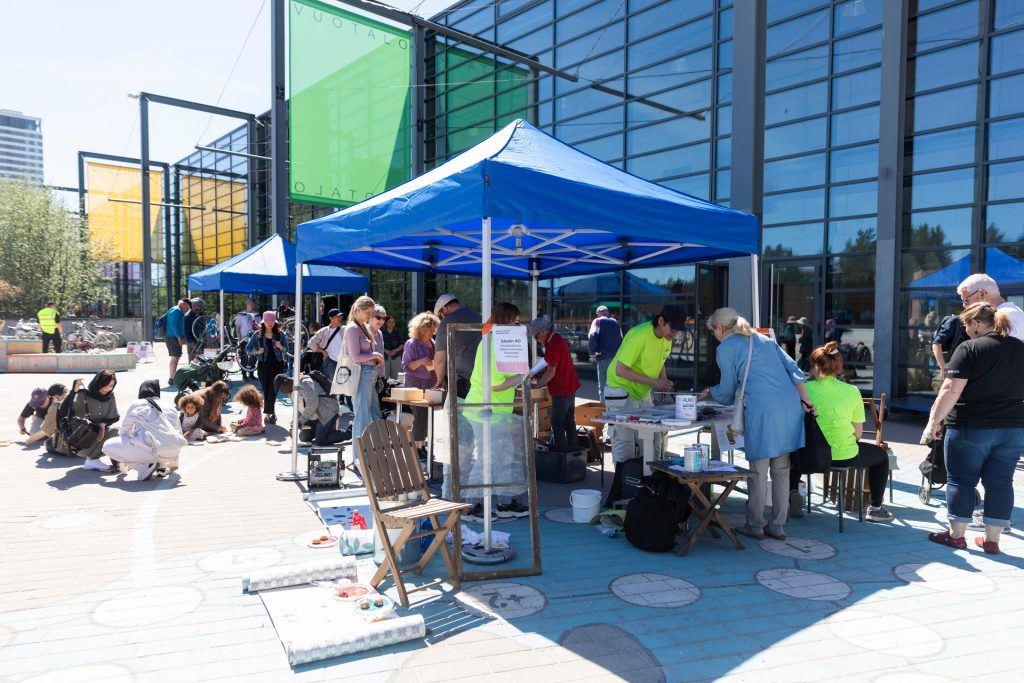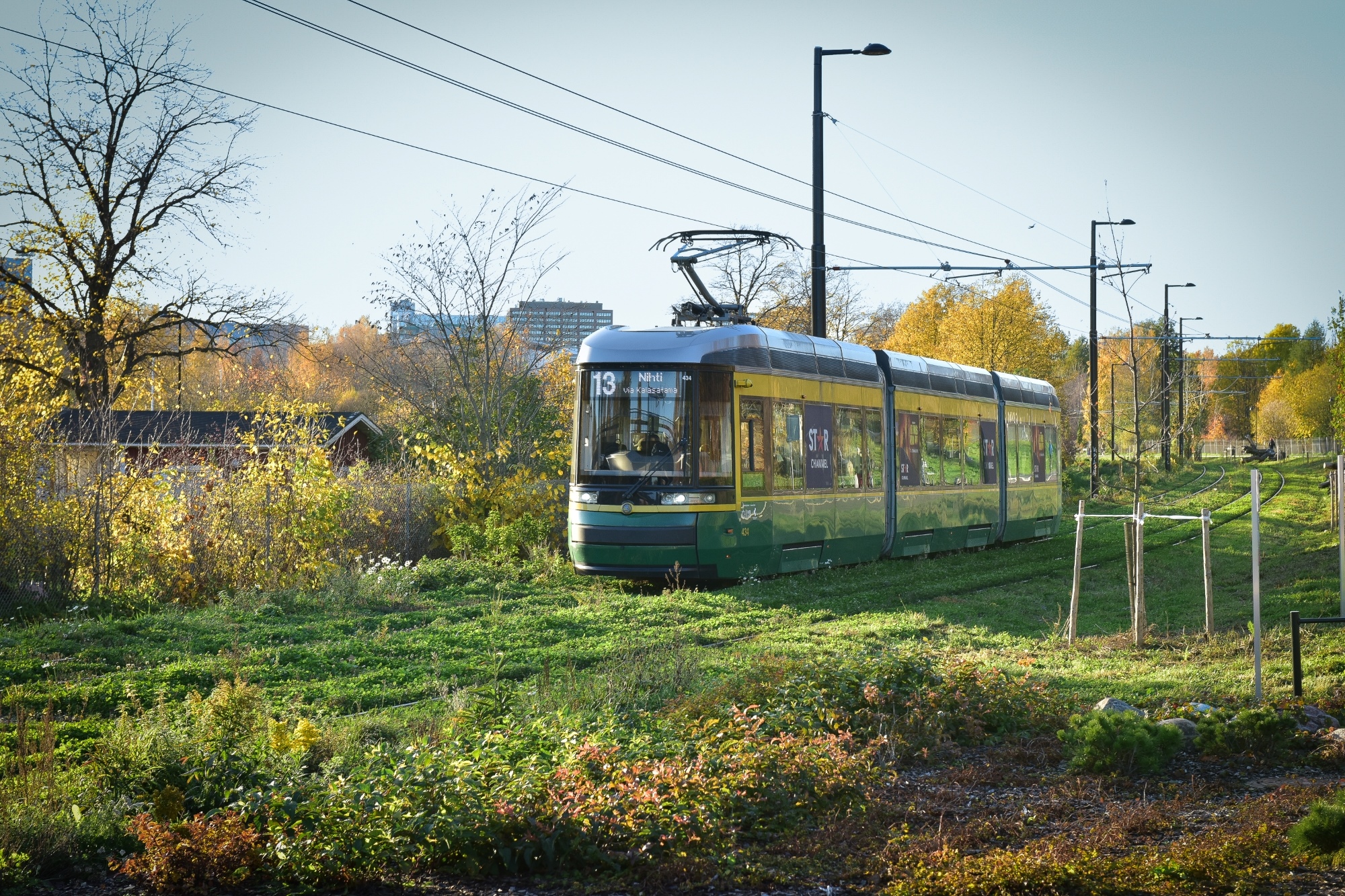


Helsinki’s annual procurement volume is approximately five billion euros, making the City the largest operator engaging in public procurement in Finland. Helsinki is committed to promoting environmental, social and economic responsibility in its procurement, and the City has a comprehensive network of responsible procurement.
In accordance with the City’s environmental protection objectives, environmental impact assessment must be carried out in all procurements exceeding the national threshold value. The City’s major divisions and enterprises used environmental criteria in an average of 70% of their procurements above the threshold in 2023. These figures have risen significantly from previous years, partly reflecting the growing importance and expertise of the issue and partly the improved monitoring of the use of criteria by the procurement units.
Helsinki is strongly committed to promoting responsible procurement. In particular, environmental requirements are well implemented, and the situation regarding social responsibility requirements is constantly improving. Requirement monitoring and auditing practices in particular require systematisation, resources and new skills.
Monitoring and impact assessment also require development to provide better information on the implementation of the responsibility targets. The aim is to obtain better information on both the use of responsibility criteria in procurement and their effectiveness.
In summer 2023, the City Board approved the update of the City of Helsinki’s Roadmap for Circular and Sharing Economy into an action plan. The priorities of the action plan are construction, procurement, and environmental awareness and sustainable consumption. For each priority, the action plan sets circular economy targets up to 2035. To achieve the targets, the action plan includes 23 actions, the progress of which will be monitored through the public Kiertotalousvahti (Circular Economy Watch) service.
The Urban Environment Division is implementing various circular economy pilot projects, focusing on the reuse of building components and movable property, among other things. In the longer term, the aim is to use the knowledge gained from the pilots to increase the circular economy requirements for the design and implementation of service and residential buildings. In infrastructure construction, a policy is in place for the reuse of leftover soil and paving materials from construction sites, as well as self-produced recycled substrates.
The City of Helsinki is participating in the PlastLIFE project, coordinated by the Finnish Environment Institute, which is implementing Finland’s national Plastics Roadmap. The Helsinki sub-project focuses on the use of plastics in the construction of the City’s infrastructure, green spaces and sports facilities. In 2023, the project included a study on the plastic flows in the City’s street and park construction, and a series of studies and a pilot procurement on the recycling of disused artificial turf, among other things.
The City has worked to raise awareness of circular and sharing economy services in the Helsinki area. The City carried out communications on circular economy services included in the Helsinki Metropolitan Area Service Map in 2023 and will continue these efforts. The City has twice organised a circular economy event for residents, sharing tips on more sustainable lifestyles, such as reducing food waste and borrowing and renting goods. Furthermore, Environmental Services launched a project in 2024, funded by the City Executive Office’s integration support appropriation, which aims to increase the knowledge and skills of Helsinki residents, especially those with foreign backgrounds, regarding sustainable everyday choices.
A comprehensive transition to a circular economy requires strong integration of the theme into all City activities and City-level leadership and commitment.
Progress has been made in reducing harmful substances and combating labour exploitation
The City of Helsinki still has work to do in acknowledging global responsibility and human rights and in promoting the circular economy and nature-based solutions. Better progress has been made in addressing environmental and climate perspectives and employment through procurement.
The NonHazCity 3 project has developed the consideration of harmful substances in construction projects. In addition to this, criteria to reduce harmful substances have been developed for procurement in early childhood education.
Helsinki requires its partners to engage in activities that respect the employee’s human rights and basic labour rights. The City has introduced a City-wide Code of Conduct for procurement, in addition to which an internal guideline on the prevention of labour exploitation in the City’s service procurement has been drawn up. Special attention is paid to procurements where, on the basis of a risk analysis, it can be expected that there are risks related to social responsibility due to long supply chains, the large degree of human labour involved or the conditions of the country of production. Helsinki promotes the employment of those in a weaker position in the labour market by using employment clauses in its procurement.
Successes:
- The proportion of low-carbon procurement in the City’s total procurement has increased.
- Competence in responsible procurement has improved, and procurement units have increased their capacity to take sustainability issues into account in procurement.
- Helsinki’s ability to manage harmful substances in procurement has increased.
- Procurement units are trained to combat labour exploitation.
- The Finnish National Commission on Sustainable Development, the Ministry of the Environment, the Ministry of Economic Affairs and Employment, the Ministry of Agriculture and Forestry, the National Nutrition Council and Ecolabel Finland awarded the City of Helsinki for its two Green Deals in 2023.
- In active cooperation with the market in the PlastLIFE project, the City has found circular economy solutions for the treatment of the City’s disused artificial turf.
- The City’s building regulations, updated in 2023, stipulate that when buildings are demolished, any usable parts of the buildings must be identified and their reuse promoted.
- The circular economy events organised by the City have been perceived as successful and important, and cooperation between different divisions has been smooth.
Areas for development:
- Verification of responsibility requirements, monitoring during the contract period and auditing practices need to be improved.
- Monitoring and reporting on responsible procurement at the organisational level is not sufficiently comprehensive and accurate.
- National resources to promote responsible procurement were dramatically reduced and the KEINO competence centre ceased its operations.
- Further efforts and new approaches are needed to improve the visibility of circular and sharing economy services and increase the understanding and participation of residents in sustainable choices.
- The promotion of circularity is still in the hands of individual services and people in the City organisation. City-level understanding of the systemic transformation is lacking.
Programmes:
Action Plan for the Circular and Sharing Economy PDF, in Finnish
City of Helsinki Procurement Strategy PDF


